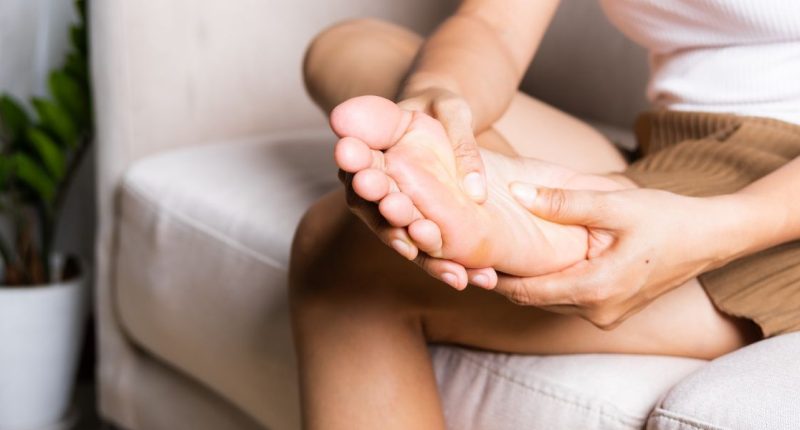Research has revealed just how common nerve damage that affects the hands and feet is – and the extent to which it is undiagnosed.
Neuropathy causes numbness and pain in these limbs and can lead to falls and infection.
Researchers have called for “urgent interventions” after finding that 73% of people in the group they surveyed had neuropathy, and of those, 75% were undiagnosed.
The team have said the numbers were “extraordinarily high”, particularly those who were undiagnosed.
Study author Melissa A. Elafros, of the University of Michigan in Ann Arbor and member of the American Academy of Neurology, explained: “More than one-third of people with neuropathy experience sharp, prickling or shock-like pain, which increases their rates of depression and decreases quality of life.
“People with neuropathy also have an increased risk of earlier death, even when you take into account other conditions they have, so identifying and treating people with or at risk for neuropathy is essential.”
The research involved 169 people from a medical clinic in Michigan. The group had an average age of 58 years, 69% were Black and half had diabetes.
Metabolic syndrome was seen in 76% of the group, which is defined as having excess belly fat plus two or more of the following risk factors: high blood pressure, higher than normal fat in the blood, high blood sugar and low ‘good’ cholesterol. These risk factors are also linked to neuropathy.
The researchers found that out of those people with neuropathy, 74% had metabolic syndrome, compared to 54% of those who did not have neuropathy.
Elafros said: “The amount of people with neuropathy in this study, particularly undiagnosed neuropathy, was extraordinarily high with almost three fourths of the study population.
“This highlights the urgent need for interventions that improve diagnosis and management of this condition, as well as the need for managing risk factors that can lead to this condition.”
The study also evaluated any links between race and income and neuropathy. Researchers did not find any relationship between low income and neuropathy, while in terms of race, Black people had a lower risk of neuropathy.
The team found that Black people made up 60% of those with neuropathy and 91% of those without neuropathy.
Read the study in full in Neurology.









